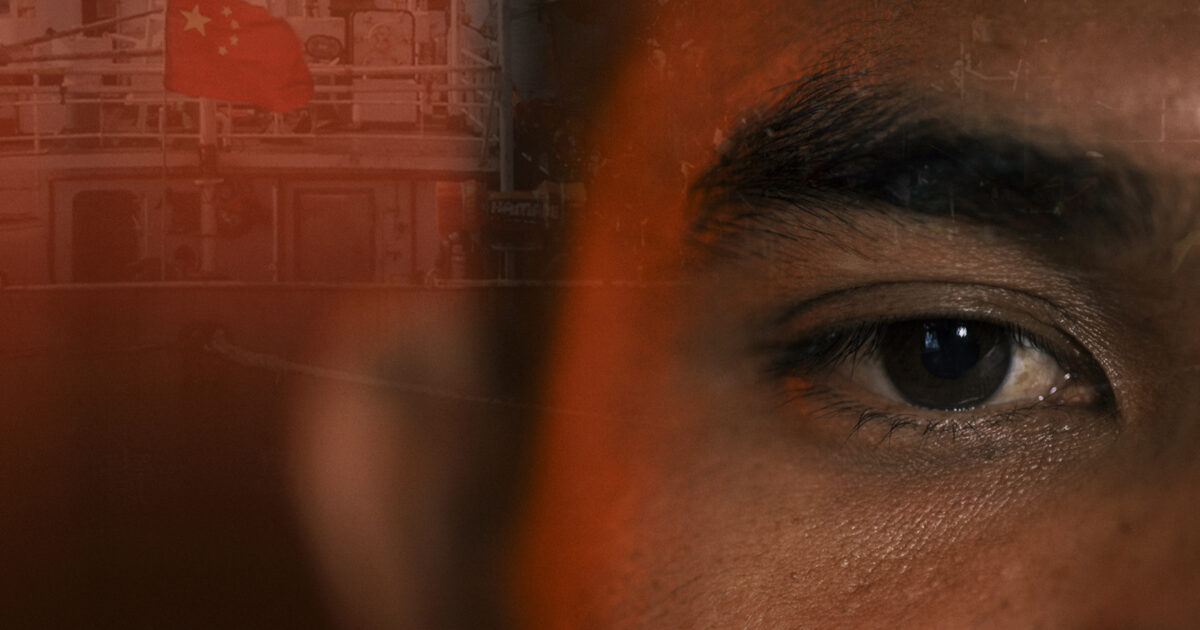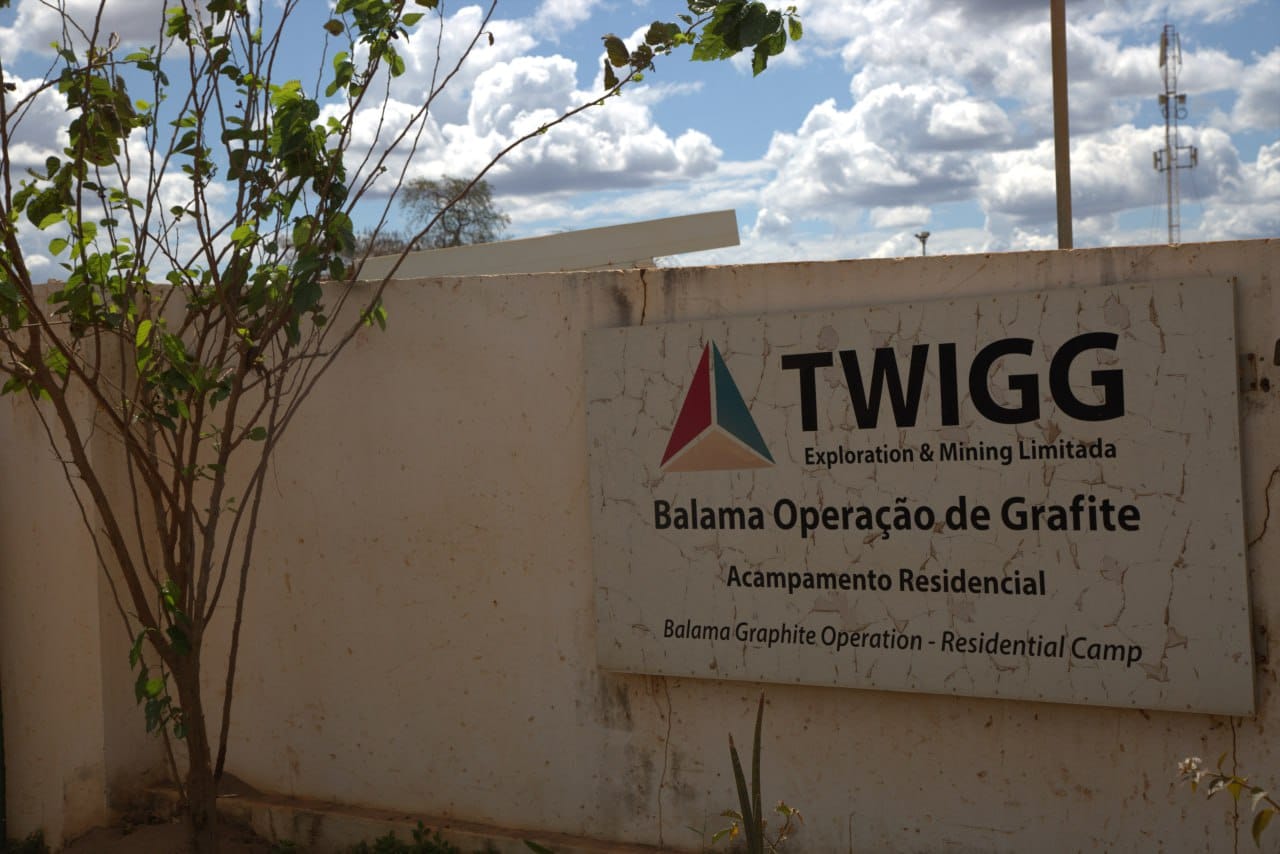China’s overseas fishing fleet is committing human rights abuses and carrying on illegal, unreported, and unregulated fishing practices in Mozambican waters, and victimising Mozambican fishermen and the coastal communities they support, according to an NGO report published this month.

The report from the Environmental Justice Foundation (EJF) found a wide range of alleged offences committed by China’s distant-water fishing fleet between 2017 and 2023, encouraging the depletion of fishing stocks. Practices included fishing too close to the shore, fishing in areas reserved for small-scale fishing businesses, using illegal equipment, fishing for species not permitted under their licence and destroying coral reefs.
The report also suggested that some Chinese-owned vessels were operating in Mozambican waters without licences, meaning that the true scale of fishing by the world’s largest distant-water fleet is being disguised. It further argues that over-exploitation of fishing stocks has been enabled by China’s investment in port and other other infrastructure in countries bordering the Indian Ocean, under its Belt and Road Initiative. Finally, the report details violence against Mozambican workers employed by Chinese fishing companies.
EJF chief executive Steven Trent said in a statement: “While the Chinese government portrays its investment in the countries bordering the [south-west Indian Ocean] as a win-win, the clear reality is that it is doing direct harm. This applies equally to coastal communities whose livelihoods are threatened by the activities of these commercial vessels, to the people suffering shocking human rights abuses on the same vessels, and to the SWIO countries saddled with corruption and debt from China’s investments.”
The report was published shortly before President Filipe Nyusi laid the first stone for the construction of a new fisheries monitoring centre in the Katembe neighbourhood of the city of Maputo. The centre, estimated to cost around MZN113m ($1.8m), is to be used by member states of the Southern African Development Community. “Our country has been exemplarily committed to taking action against illegal, unreported and unregulated fishing,” Nyusi said at the launch.
“Basically colonialism”
More than half of the fishermen interviewed for the report experienced or witnessed physical abuse and violence, with 64% experiencing verbal abuse. Four deaths are alleged to have occurred aboard Chinese vessels, including one apparent suicide. 74% of workers claimed to have wages deducted or withheld, with extremely long working hours, inadequate food and ‘slavery’ like conditions.
In Mozambique’s port city of Beira, in January 2024, investigators spoke with 16 Mozambican fishermen who had worked on Chinese-owned trawlers within the Mozambican exclusive economic zone since 2018. The report notes that “Chinese crew are alleged to have used whatever tools were at their disposal to beat [the Mozambican crew]; one Mozambican crew member stated that he saw Chinese crew using hammers to beat [them], while another saw colleagues attacked with ropes. Workers stated they were reluctant to report such violence to authorities for fear of losing their jobs – one colleague of a crew member allegedly had his maritime qualification invalidated after reporting an attack by a Chinese crew member, and was unable to work at sea again.”
In 14 of the 16 interviewees’ accounts, they described witnessing intimidation and threats on board Chinese-owned vessels, including those belonging to Dalian Yangming Overseas Fishery, Fu Yue Pescas, Guangdong Xiesheng, and Ocean Rich Pelagic Moçambique. Thirteen of the 16 crew members said they had seen physical abuse. “They will hit you with anything,” one interviewee said. “Their hands, kick you with their feet, or even anything that is nearby. They will use a random object and hit you in the head with it.” Another claimed, “What we go through on these vessels is basically colonialism, but we have no choice... that’s slavery, not work”.
“Destroying future production”
Of the Mozambican fishermen interviewed, the report said that 56% reported illegal fishing in prohibited areas; 50% reported the deliberate capture and/or injury of large vulnerable marine creatures like dolphins, sharks and sea turtles; 25% reported the use of illegal fishing gear; 88% reported intimidation and threats; 81% reported physical abuse; and 69% reported abusive working and living conditions.
Crew members also reported shark finning — the illegal practice of taking the fins from sharks, which are then returned to the sea without their fins — and the torture of dolphins, among systematic fishing violations, including vessels operating in areas reserved for small-scale boats, and fishing for species outside their licences.
EJF investigators spoke with independent Mozambican fishermen who recounted Chinese trawlers working illegally close to the coast, while using prohibitively extra-fine nets, destroying reefs, and in conflict with local fishing boats, ripping their nets and damaging equipment. “Normally, we avoid those boats,” one interviewee claimed. “When they see us we are the ones who run away from them, not them from us, because we know they can damage our gear.” Another said, “Before they came here we would catch enough fish here by throwing our net even just three times. But now for you to catch enough fish you need to spend the day at sea. We feel hurt because that fish was supposed to be not just for us but for our children ... They are destroying future production.”
Findings also raise questions about whether all Chinese fishing firms are licensed to fish, and if the government is keeping records of their licences. According to the report, as at February this year, only lists of licences for 2019, 2020 and 2023 were available. Of the seven Chinese-owned companies that employed Mozambican fishermen interviewed for the report, only two, Fu Yue Pescas and Guangdong Xiesheng, had licences that were up-to-date at the last update of the lists in 2023. One firm, Guangdong Shunxin Sea Fishery Group Co was not present on any available online licence list, despite having been seen operating in Mozambican waters. The keeping of licence records is the responsibility of the Mozambican National Fisheries Administration.
The report also refers to reports by the NGO the Centre for Public Integrity and the website Carta de Moçambique that Motil Moçambique, a company belonging to Florindo Nyusi, son of President Filipe Nyusi, was awarded fishing licences “despite appearing not to own any fishing vessels”. The licences were transferred to Nanjing Runyang Fishing Corporation, a Chinese-owned business, in June 2017, one month after Motil Moçambique was registered. According to Article 44 of Mozambique’s fishery law, fishing licences may not be transferred.
The report details both past and potential Chinese-led or funded infrastructure projects in Mozambique, including the restoration and expansion of Beira’s fishing port, completed in 2019 and reportedly set for further expansion, plus projects for ports in Nacala, Maputo, Chongoene in Gaza, and Techobanine in Maputo province. “Chinese investment in fisheries infrastructure is likely to be associated with an influx of fishing vessels - in many instances creating burdens upon locally important resources with negative impacts on coastal livelihoods,” the report found, adding that the investment was also associated with an increase in illegal fishing.
Mozambique has 2,700km of coastline, the third longest coastline on the Indian Ocean and the fourth largest in Africa. Fisheries are of huge national economic significance, with traditional, small-scale so-called “artisanal” fishing accounting for the bulk of the produce. Over the past 25 years, the catch from artisanal fishing is estimated to have reduced by almost 30% due to industrial and illegal fishing. Mozambique is said to be losing $60-70m each year due to illegal practices, according to the Ministry of the Sea, Inland Waters and Fisheries.
The report from the EJF collected first-hand information from 60 fishermen who had worked on Chinese vessels in the south-west Indian Ocean. The team substantiated their findings by combing datasets, regional fishing authority licence and vessel lists, and carrying out desk-based research into instances of illegal fishing, human rights abuses, and onshore marine and fisheries investments in Comoros, Kenya, Madagascar, Mauritius, Mozambique, Seychelles, and Tanzania.










